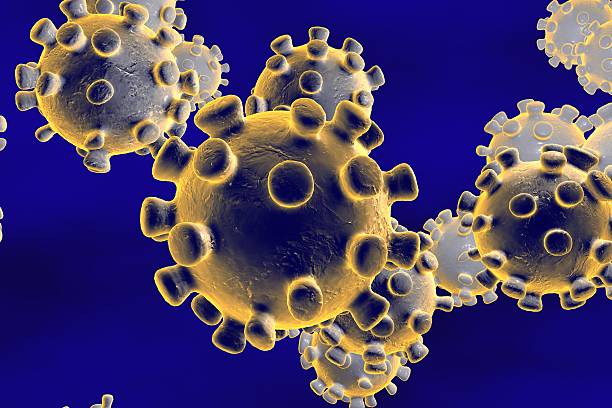Coronavirus Disease (COVID-19): Unveiling the Pandemic's Impact on Society and Health
Introduction
The emergence of the novel coronavirus, known as SARS-CoV-2, in late 2019 marked the onset of a global health crisis that has left an indelible mark on society, economy, and health systems worldwide. This virus is responsible for the coronavirus disease (COVID-19), a highly contagious respiratory illness that swiftly escalated into a pandemic. This article delves into the origins, spread, impact, preventive measures, and future considerations surrounding COVID-19.
Origins and Spread
COVID-19 is caused by the severe acute respiratory syndrome coronavirus 2 (SARS-CoV-2), a member of the coronavirus family. It is believed to have originated in a seafood market in Wuhan, China. Rapid international travel facilitated the virus's swift spread, resulting in a global pandemic. The virus primarily spreads through respiratory droplets when an infected person coughs, sneezes, talks, or breathes. Asymptomatic carriers also contribute to transmission, making containment challenging.
Impact on Society
The pandemic's impact on society has been profound. Governments worldwide implemented lockdowns, travel restrictions, and quarantines to curb the virus's spread, resulting in disruptions to daily life and global supply chains. Educational institutions shifted to remote learning, businesses struggled to stay afloat, and unemployment rates soared. Social interactions transformed with the adoption of masks, physical distancing, and virtual gatherings. Mental health concerns rose due to isolation, fear, and uncertainty.
Impact on Health
COVID-19's impact on health systems has been unprecedented. Hospitals faced overwhelming patient numbers, leading to shortages of beds, ventilators, and medical supplies. Healthcare workers battled exhaustion and increased infection risk. The virus posed a higher risk to older adults and individuals with underlying health conditions, exacerbating health inequalities. Long-term health effects, known as "long COVID," presented a range of symptoms persisting beyond the acute phase of the illness.
Preventive Measures
Efforts to curb the virus's spread centered on preventive measures. Widespread testing and contact tracing aided in identifying and isolating cases. The importance of hand hygiene, mask-wearing, and physical distancing became integral to public health campaigns. Vaccination campaigns were launched globally, with multiple vaccines developed in record time. Vaccines like Pfizer-BioNTech, Moderna, AstraZeneca, and Johnson & Johnson gained emergency use authorization, offering hope for controlling the pandemic.
Global Response and Cooperation
The pandemic highlighted the need for international cooperation. Organizations like the World Health Organization (WHO) played a central role in providing guidance and coordinating response efforts. Collaborative research led to a better understanding of the virus's characteristics, transmission, and treatment options. However, challenges emerged as countries vied for limited medical resources, and vaccine distribution inequities underscored global health disparities.
Looking Forward
COVID-19's legacy will continue to shape our world. Lessons learned include the importance of robust healthcare systems, pandemic preparedness, and equitable vaccine distribution. Remote work and virtual interactions may become more integrated into daily life. Scientists are closely monitoring the virus for mutations that could impact transmissibility, severity, or vaccine effectiveness. Ongoing research is crucial to refining treatments, understanding long COVID, and preventing future outbreaks.
Conclusion
The coronavirus disease (COVID-19) pandemic has been an unparalleled global crisis, profoundly affecting society, economy, and health. Originating from the SARS-CoV-2 virus, the pandemic's rapid spread led to widespread health and societal disruptions. Governments, organizations, and individuals rallied to implement preventive measures, roll out vaccination campaigns, and collaborate on research efforts. While challenges remain, the pandemic has also spurred innovation, resilience, and a renewed commitment to global health cooperation. As we navigate the path forward, the lessons learned from this crisis will undoubtedly shape our approach to public health, preparedness, and international collaboration.
Introduction
The emergence of the novel coronavirus, known as SARS-CoV-2, in late 2019 marked the onset of a global health crisis that has left an indelible mark on society, economy, and health systems worldwide. This virus is responsible for the coronavirus disease (COVID-19), a highly contagious respiratory illness that swiftly escalated into a pandemic. This article delves into the origins, spread, impact, preventive measures, and future considerations surrounding COVID-19.
Origins and Spread
COVID-19 is caused by the severe acute respiratory syndrome coronavirus 2 (SARS-CoV-2), a member of the coronavirus family. It is believed to have originated in a seafood market in Wuhan, China. Rapid international travel facilitated the virus's swift spread, resulting in a global pandemic. The virus primarily spreads through respiratory droplets when an infected person coughs, sneezes, talks, or breathes. Asymptomatic carriers also contribute to transmission, making containment challenging.
Impact on Society
The pandemic's impact on society has been profound. Governments worldwide implemented lockdowns, travel restrictions, and quarantines to curb the virus's spread, resulting in disruptions to daily life and global supply chains. Educational institutions shifted to remote learning, businesses struggled to stay afloat, and unemployment rates soared. Social interactions transformed with the adoption of masks, physical distancing, and virtual gatherings. Mental health concerns rose due to isolation, fear, and uncertainty.
Impact on Health
COVID-19's impact on health systems has been unprecedented. Hospitals faced overwhelming patient numbers, leading to shortages of beds, ventilators, and medical supplies. Healthcare workers battled exhaustion and increased infection risk. The virus posed a higher risk to older adults and individuals with underlying health conditions, exacerbating health inequalities. Long-term health effects, known as "long COVID," presented a range of symptoms persisting beyond the acute phase of the illness.
Preventive Measures
Efforts to curb the virus's spread centered on preventive measures. Widespread testing and contact tracing aided in identifying and isolating cases. The importance of hand hygiene, mask-wearing, and physical distancing became integral to public health campaigns. Vaccination campaigns were launched globally, with multiple vaccines developed in record time. Vaccines like Pfizer-BioNTech, Moderna, AstraZeneca, and Johnson & Johnson gained emergency use authorization, offering hope for controlling the pandemic.
Global Response and Cooperation
The pandemic highlighted the need for international cooperation. Organizations like the World Health Organization (WHO) played a central role in providing guidance and coordinating response efforts. Collaborative research led to a better understanding of the virus's characteristics, transmission, and treatment options. However, challenges emerged as countries vied for limited medical resources, and vaccine distribution inequities underscored global health disparities.
Looking Forward
COVID-19's legacy will continue to shape our world. Lessons learned include the importance of robust healthcare systems, pandemic preparedness, and equitable vaccine distribution. Remote work and virtual interactions may become more integrated into daily life. Scientists are closely monitoring the virus for mutations that could impact transmissibility, severity, or vaccine effectiveness. Ongoing research is crucial to refining treatments, understanding long COVID, and preventing future outbreaks.
Conclusion
The coronavirus disease (COVID-19) pandemic has been an unparalleled global crisis, profoundly affecting society, economy, and health. Originating from the SARS-CoV-2 virus, the pandemic's rapid spread led to widespread health and societal disruptions. Governments, organizations, and individuals rallied to implement preventive measures, roll out vaccination campaigns, and collaborate on research efforts. While challenges remain, the pandemic has also spurred innovation, resilience, and a renewed commitment to global health cooperation. As we navigate the path forward, the lessons learned from this crisis will undoubtedly shape our approach to public health, preparedness, and international collaboration.




